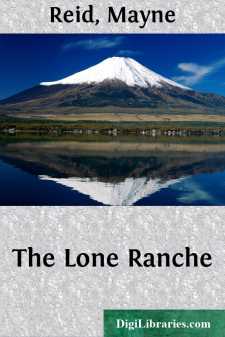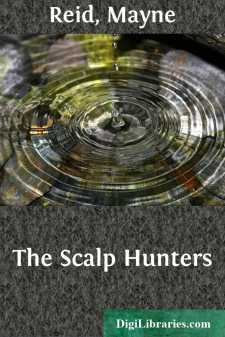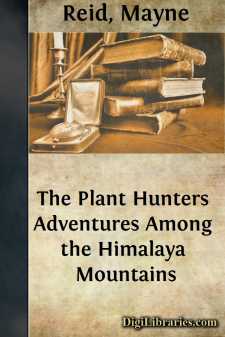Categories
- Antiques & Collectibles 13
- Architecture 36
- Art 48
- Bibles 22
- Biography & Autobiography 813
- Body, Mind & Spirit 142
- Business & Economics 28
- Children's Books 17
- Children's Fiction 14
- Computers 4
- Cooking 94
- Crafts & Hobbies 4
- Drama 346
- Education 46
- Family & Relationships 57
- Fiction 11829
- Games 19
- Gardening 17
- Health & Fitness 34
- History 1377
- House & Home 1
- Humor 147
- Juvenile Fiction 1873
- Juvenile Nonfiction 202
- Language Arts & Disciplines 88
- Law 16
- Literary Collections 686
- Literary Criticism 179
- Mathematics 13
- Medical 41
- Music 40
- Nature 179
- Non-Classifiable 1768
- Performing Arts 7
- Periodicals 1453
- Philosophy 64
- Photography 2
- Poetry 896
- Political Science 203
- Psychology 42
- Reference 154
- Religion 513
- Science 126
- Self-Help 84
- Social Science 81
- Sports & Recreation 34
- Study Aids 3
- Technology & Engineering 59
- Transportation 23
- Travel 463
- True Crime 29
The Lone Ranche
by: Mayne Reid
Categories:
Description:
Excerpt
A Tale of the Staked Plain.
“Hats Off!”
Within the city of Chihuahua, metropolis of the northern provinces of Mexico—for the most part built of mud—standing in the midst of vast barren plains, o’ertopped by bold porphyritic mountains—plains with a population sparse as their timber—in the old city of Chihuahua lies the first scene of our story.
Less than twenty thousand people dwell within the walls of this North Mexican metropolis, and in the country surrounding it a like limited number.
Once they were thicker on the soil; but the tomahawk of the Comanche and the spear of the Apache have thinned off the descendants of the Conquistadores, until country houses stand at wide distances apart, with more than an equal number of ruins between.
Yet this same city of Chihuahua challenges weird and wonderful memories. At the mention of its name springs up a host of strange records, the souvenirs of a frontier life altogether different from that wreathed round the history of Anglo-American borderland. It recalls the cowled monk with his cross, and the soldier close following with his sword; the old mission-house, with its church and garrison beside it; the fierce savage lured from a roving life, and changed into a toiling peon, afterwards to revolt against a system of slavery that even religion failed to make endurable; the neophyte turning his hand against his priestly instructor, equally his oppressor; revolt followed by a deluge of blood, with ruinous devastation, until the walls of both mission and military cuartel are left tenantless, and the redskin has returned to his roving.
Such a history has had the city of Chihuahua and the settlements in its neighbourhood. Nor is the latter portion of it all a chronicle of the olden time. Much of it belongs to modern days; ay, similar scenes are transpiring even now. But a few years ago a stranger entering its gates would have seen nailed overhead, and whisked to and fro by the wind, some scores of objects similar to one another, and resembling tufts of hair, long, trailing, and black, as if taken from the manes or tails of horses. But it came not thence; it was human hair; and the patches of skin that served to keep the bunches together had been stripped from human skulls! They were scalps—the scalps of Indians, showing that the Comanche and Apache savages had not had it all their own way.
Beside them could be seen other elevated objects of auricle shape, set in rows or circles like a festooning of child peppers strung up for preservation. No doubt their procurement had drawn tears from the eyes of those whose heads had furnished them, for they were human ears!
These ghastly souvenirs were the bounty warrants of a band whose deeds have been already chronicled by this same pen. They were the trophies of “Scalp Hunters”—vouchers for the number of Indians they had killed.
They were there less than a quarter of a century ago, waving in the dry wind that sweeps over the plains of Chihuahua. For aught the writer knows, they may be there still; or, if not the same, others of like gory record replacing or supplementing them....












